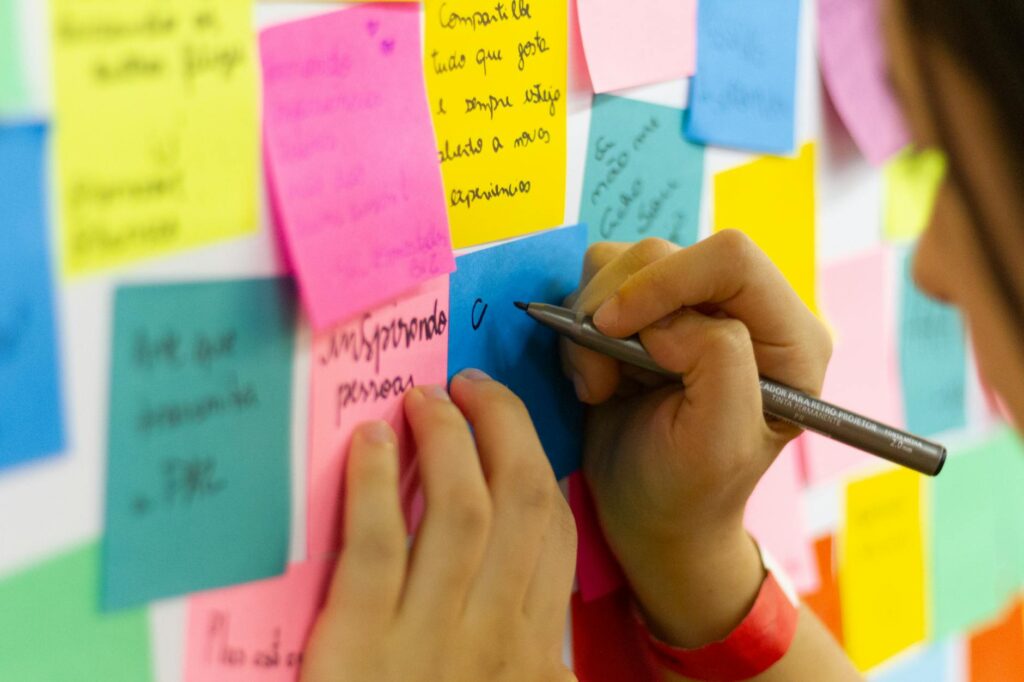Memory Improvement Techniques
Boosting your memory doesn’t have to be a boring chore. Dive into the fun with some brain-boosting games and the puzzling power of, well, puzzles!
Games That Get Your Brain Buzzing
Who knew having fun could make you smarter? Number games like sudoku are great for challenging that noggin of yours. A 2019 study found that folks between 50 and 93 years old who often played number puzzles, like sudoku, scored better on cognitive tests. Fun and sharp as a tack? Count us in!
| Game Type | What It’s Good For |
|---|---|
| Sudoku | Keeps your mind fit |
| Crossword Puzzles | Boosts vocabulary and sharpens your solving skills |
| Memory Card Games | Enhances recall and focus |
Getting Puzzled and Loving It
Jigsaw puzzles do more than just keep you busy—they engage lots of brainy functions. They might help you fend off that pesky brain aging stuff. Every piece you put in place gives a workout to your spatial skills, memory, and problem-solving muscles.
| Puzzle Type | Brains Fired Up On |
|---|---|
| Jigsaw Puzzles | Shapes, memory, focus |
| Logic Puzzles | Thinks deeper, reasons better |
| Word Puzzles | Talks the talk and spots patterns |
Adding these activities to your day-to-day not only gives you something fun to do, but it’s also a top-notch way to boost that memory of yours. So, have a blast doing them and watch your mental prowess grow!
Cognitive Benefits of Learning
Checking out the perks that come with learning can seriously boost your memory and general brain mojo. Two main tricks up your sleeve are picking up a new language and using some brain-helper tools known as mnemonic devices.
Language Acquisition and Brain Connectivity
Getting into a new language is like doing yoga for your brain. It jazzes up how different parts of your noggin talk to each other. Studies have shown that learning a new lingo buffs up the connections in your brain. This can help keep Alzheimer’s and other brain fuzziness at bay, according to a 2019 piece in Medical News Today.
| Brain Perk | What’s Happening |
|---|---|
| Better Connections | Brain areas chat with each other more efficiently. |
| Less Brain Fog | It might keep Alzheimer’s at arm’s length. |
| Smarter Problem Solving | Gives you a leg up on critical thinking and tackling puzzles. |
Diving into language learning isn’t just about spicing up your vocabulary – it’s about giving your brain a full workout that’ll help you day to day.
Getting the Most Out of Mnemonic Devices
Mnemonic tools are like turbo boosters for your memory. They work by hitching a ride on how your brain naturally logs info. Think acronyms, chunking stuff together, and rhymes. Using these can bump up what you can remember by 20%.
| Memory Trick | How It Works | Perks |
|---|---|---|
| Acronyms | Make a new word from the first letters of multiple words. | Makes stuff easier to remember. |
| Chunking | Break down info into bite-sized bits. | Cuts mental overload and boosts retention. |
| Memory Palace | Pair items with spots in a place you know well. | Visualizing helps with information recall. |
Putting these memory tricks to work can significantly ramp up what’s rattling around in your head (Psych Central). Add these into your study routine and see your memory and recall skyrocket.
Lifestyle Factors for Memory
Your memory is like an old friend that sometimes needs a little extra care. Give it some love through your daily habits, especially what you eat, how you move, and how well you catch those Z’s.
Impact of Diet and Nutrition
Think of your brain as a supercomputer. You don’t feed a computer with French fries, right? What you put on your plate can make your noggin tick better. Load up on veggies, fish, nuts, and those good fats! The Mediterranean and MIND diets get all the rave because they limit stuff like red meat and sugary treats while dishing out plenty of greens and omega-3-rich fish. Sticking to a MIND approach could have you acing those brain games by cutting down goof-ups on memory tests by up to a third (Harvard Health Publishing).
Here’s some grub that’ll get your brain buzzing:
| Food Type | Benefits |
|---|---|
| Leafy Greens | Full of antioxidants; keeps the brain sharp |
| Berries | Packed with flavonoids; boosts memory magic |
| Fatty Fish | Rich in omega-3s; a must for brainpower |
| Nuts | Full of healthy fats and protein; brain’s best buddy |
Feel like Popeye with brains by mixing good food with exercise. For real gains, balance out your fluids, carbs, and proteins to match your workout plan (Sleep Foundation).
Role of Physical Activity and Sleep
Want to keep those memory slips in check? Get moving! Regular workouts keep your mind as fit as your body, especially the memory HQ, a.k.a. the hippocampus. Folks who sweat it out a few times a week can drop their risk of losing their marbles by almost half!.
Aim for heart-pumping aerobics or feel-the-burn resistance training to sleep like a baby. Pro tip: Morning or midday exercise is golden for sound sleep, whereas night owl workouts might amp up your adrenaline, leaving you tossing and turning (Sleep Foundation).
To get a memory like an elephant, keep your workouts regular. And clock in enough shut-eye, as sleep stitches together all that cognitive jazz in your head.
In short, tuning into what you eat, getting your steps in, and clocking in quality sleep might just turn your memory game from iffy to top-notch.
Understanding Cognitive Decline
Age-Related Changes in Memory
When you get older, you might start noticing that your memory isn’t as sharp as it used to be. There are two main types of memory skills here: crystallized abilities and fluid abilities. Crystallized abilities encompass the knowledge and skills you’ve collected over time, and keep getting better until you hit around 60. Fluid abilities, on the other hand, involve quick thinking and problem-solving, and they start to dip around age 20, with a decline continuing until about 80 (PubMed Central).
Getting older can sometimes mean dealing with diseases that make this memory decline go faster, affecting how you function day-to-day. About 1 in 5 folks over 65 might notice significant dips in memory or other thinking skills, a condition called Mild Cognitive Impairment (MCI). Not everyone with MCI will develop Alzheimer’s, though. Risk factors that can nudge you toward MCI include family history, strokes, high cholesterol levels, and smoking habits (Harvard Health Publishing).
| Memory Ability | Trend with Age |
|---|---|
| Crystallized | Gets better until around 60 |
| Fluid | Starts declining from 20 to 80 |
Managing Memory Loss with Lifestyle Choices
There’re plenty of ways for you to stay on top of memory as you age. Getting active is one way to help keep your mind agile and stave off memory issues. Regular exercise is a brain-booster—keeping the hippocampus, your memory’s best buddy, in tip-top shape. Folks who work out three times a week or more have a 40-50% lower chance of getting dementia.
Other lifestyle tweaks to keep your mind sharp include:
- Saying no to smoking
- Going easy on the drinks
- Munching on brain-friendly foods like greens and berries
- Catching enough Z’s
- Getting into meditation
- Staying socially active
Incorporating these habits can play a big role in reducing memory loss and keeping your noggin in good working order as you get older (Harvard Health Publishing).



